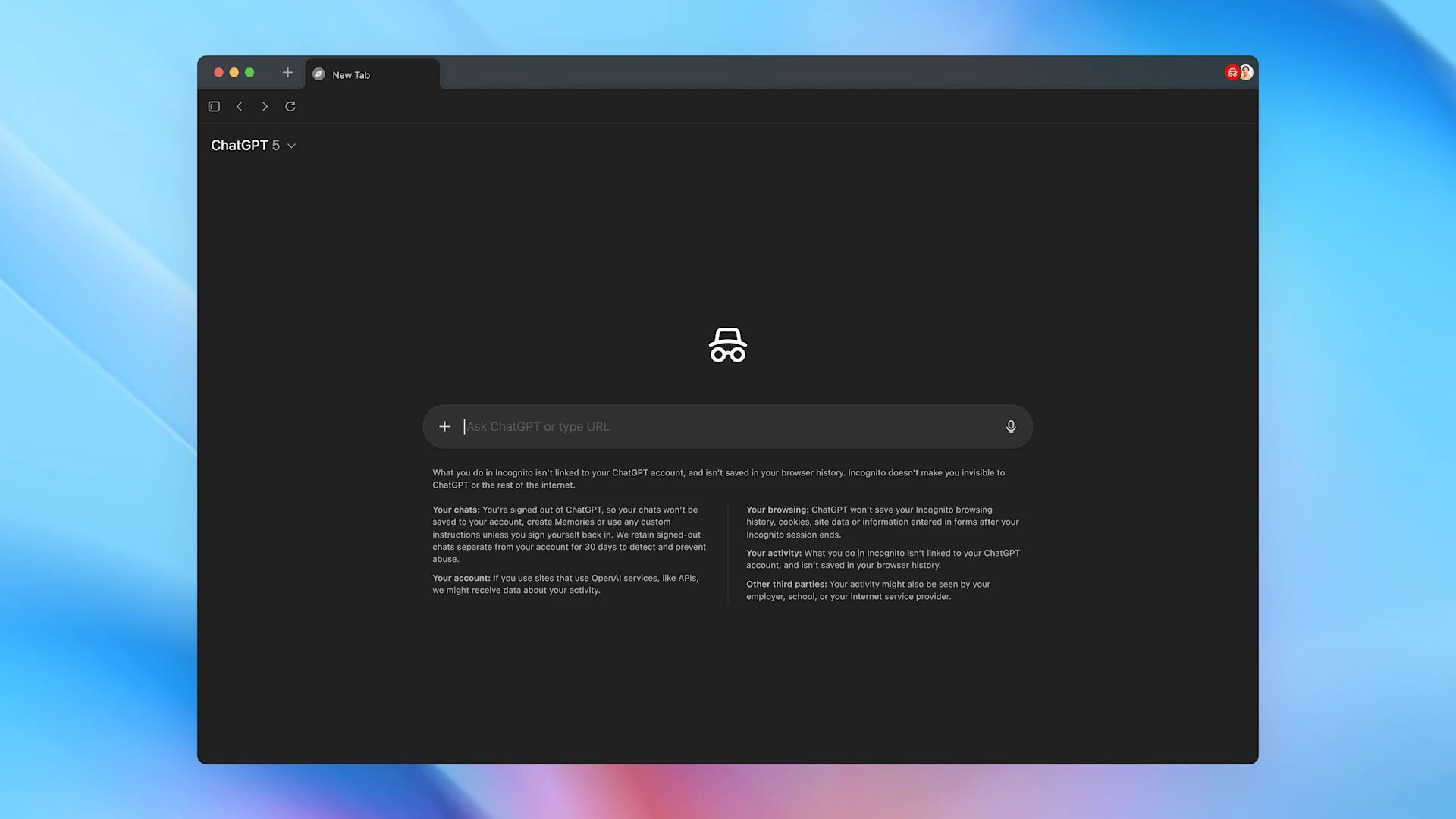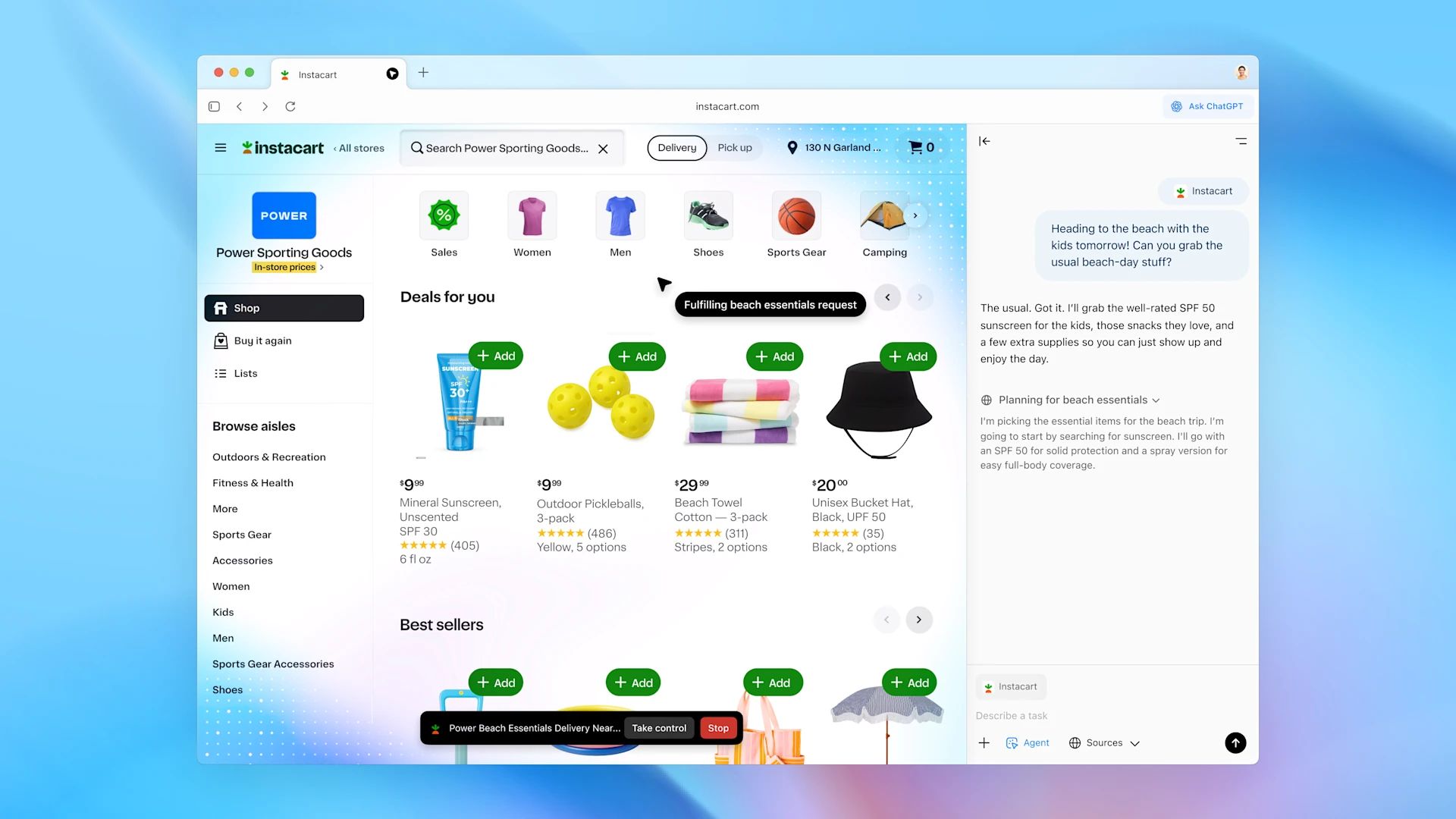OpenAI has released ChatGPT Atlas, a web browser designed to integrate its AI technology directly into the user’s web experience. The browser is initially available globally for macOS systems, with future platform expansions planned by the company.
A primary feature is the integration of a chat panel, which can be activated alongside a webpage. This panel is automatically populated with the context of the displayed page to facilitate more informed AI interactions.
The browser also includes “Browser Memories,” a function that allows ChatGPT to retain key details from a user’s browsing history. This capability is intended to refine chat responses and suggestions. Users can manage this data by viewing, archiving, or clearing the stored memories through their account settings.

ChatGPT Atlas introduces an experimental feature called “Agent Mode.” This function permits the AI to navigate and interact with websites to complete tasks on the user’s behalf, such as planning meals and ordering groceries. Throughout this automated process, the user maintains full control and possesses the ability to pause or interrupt the agent’s actions at any time.

The browser is currently accessible to macOS users on a global basis. OpenAI has announced plans to expand support for the application to additional platforms. The expansion will include Windows, iOS, and Android operating systems, with the release for these platforms scheduled to occur soon.
But Atlas enters a battlefield already heating up. Rivals like Perplexity’s Comet, The Browser Company’s Arc, and Microsoft’s Edge Copilot are all racing to fuse generative intelligence with everyday browsing. Google, still dominant through Chrome, is quietly preparing its own Gemini-powered integrations.





